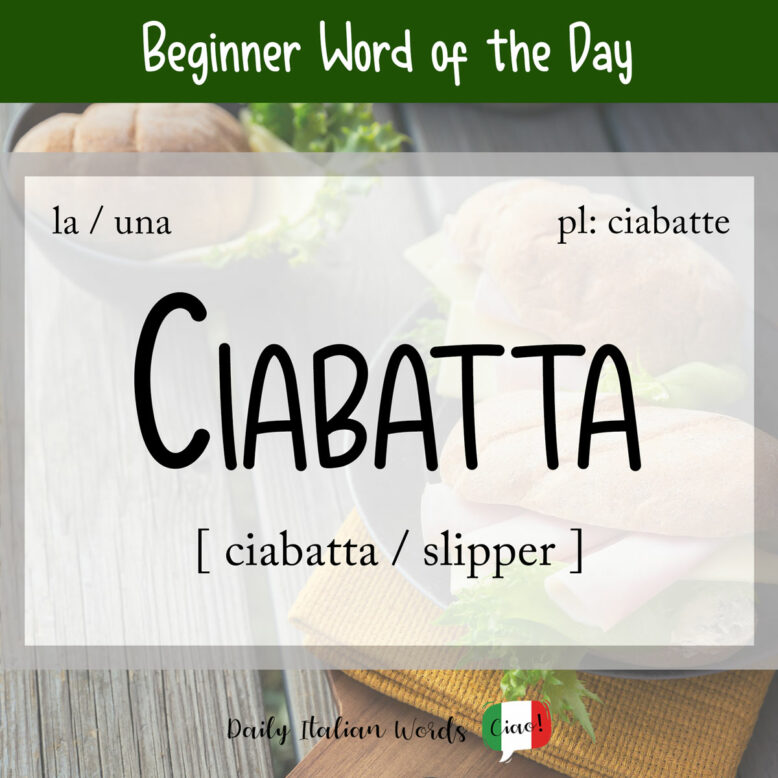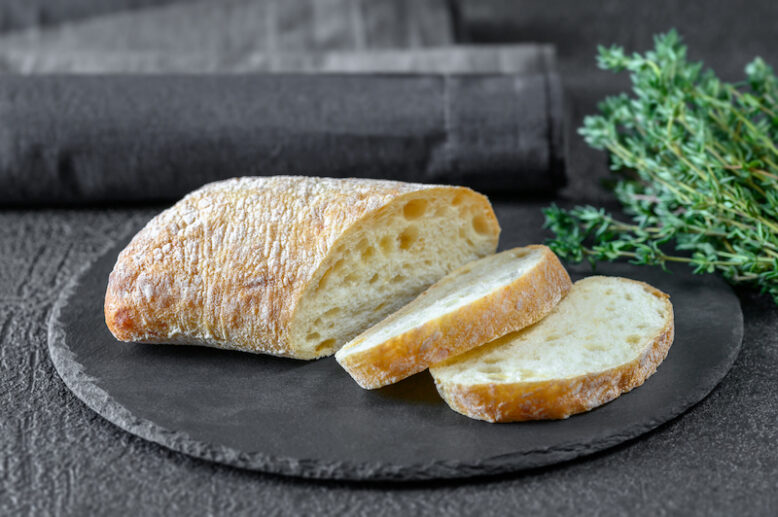The ciabatta (feminine, plural: ciabatte) is a classic type of Italian bread made from wheat, flour, water, salt, yeast and olive oil. Recognisable by its long flat shape, large holes and crunchiness, it is a very popular choice for sandwich-making across the world.
You may be surprised to learn that the ciabatta isn’t an ancient bread whose recipe has been handed down for generations. In fact, it was first invented in 1982 by baker Arnaldo Cavallari, who was concerned that the reliance on French baguettes for sandwiches was endangering the businesses of bakers around Italy.
Origin of the word:
Ciabatta is actually one way of saying slipper in Italian. We can assume that the long, broad, flat shape of the bread reminded Cavallari of this particular kind of footwear!

Learn with our video
How to pronounce ‘ciabatta’ in Italian
As with many Italian food names, ciabatta has been Anglicised to suit the sounds of the English language. That said, there isn’t a massive difference between the two pronunciations.
In fact, the only relevant difference is that English speakers don’t pronounce the double tt. Americans usually pronounce it as a ‘d’ sound whereas the British use a single ‘t’ sound. In order to produce the double tt properly, you must hold the consonant for a brief second before releasing. It should sound similar to a very short pause in the middle of the word.
<< CIABATTA >>
/tʃa’batːa/

Ho comprato tre ciabatte dal panettiere questa mattina.
I bought three ciabatta loaves at the bakery this morning.
Other meanings for ciabatta in Italian are:
- a multi-plug adapter or power strip (due to its oblong shape)
- an old person or thing that is considered worn-out and useless
This article is also available in video format on our YouTube channel. The audio version can be found on Podbean, Google Podcast, Apple Podcast and Spotify.
Heather Broster is a graduate with honours in linguistics from the University of Western Ontario. She is an aspiring polyglot, proficient in English and Italian, as well as Japanese, Welsh, and French to varying degrees of fluency. Originally from Toronto, Heather has resided in various countries, notably Italy for a period of six years. Her primary focus lies in the fields of language acquisition, education, and bilingual instruction.


